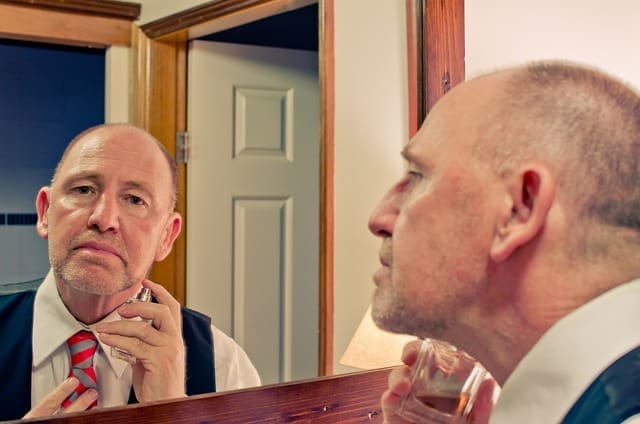Men can experience a range of health problems throughout their lives. However, they might be reluctant to address them by visiting healthcare professionals. It’s important to prioritize regular medical check-ups and adopt a healthy lifestyle to manage and prevent these issues. It’s also important to ensure you’re addressing any health problems or concerns you may have to prevent them from developing or going untreated. Here are some common men’s health problems and ways to manage them effectively.
Testicular Health
Testicular issues can often be seen as embarrassing for us to address. Still, it’s important to make sure issues are discussed and assessed by a medical professional to ensure our health and well-being. If you experience sudden and severe testicular pain accompanied by swelling and nausea, it could be testicular torsion—a medical emergency requiring immediate surgery.
In case of testicular trauma due to accidents or injuries, watch for signs like pain, swelling, and bruising, and seek medical attention. Regular self-exams and check-ups are essential to detect painless lumps or swelling, which might indicate testicular cancer, a relatively rare but serious condition. Infections such as epididymitis or orchitis could lead to pain, redness, and fever. Be attentive to discomfort or heaviness caused by varicoceles and swollen veins along the spermatic cord. Prioritize your testicular health to catch and address these issues early for the best possible outcomes.
Erectile Dysfunction (ED)
Facing erectile dysfunction (ED) can be challenging. ED, characterized by the consistent difficulty in achieving or keeping an erection for satisfactory sexual activity, might be rooted in physical factors such as diabetes, heart conditions, or psychological factors like stress, anxiety, or depression. Leading a healthy lifestyle with regular exercise, a balanced diet, and managing underlying health problems can often help improve your symptoms of ED.
Consulting a healthcare professional is crucial to identify the cause and discuss potential treatments, including medications, therapy, or lifestyle changes. Remember, you’re not alone, and effective strategies and support are available to address and manage ED, ultimately enhancing your overall quality of life and well-being. You can buy treatments for ED, such as sildenafil, easily online, making the process more discreet. Book a consultation to buy sildenafil online and begin the process of treatment for ED.
Prostate Issues
Prostate issues deserve your attention, as they are common health problems among men. The enlargement of the prostate often brings about urinary symptoms like frequent urination and weak urine flow, particularly as you age. Prostate cancer, one of the most diagnosed cancers in men, makes discussions with your healthcare provider for early detection and appropriate treatment incredibly important. Monitoring levels of antigens specific to your prostate and considering family history with your GP can help assess your risk.
Treatment options range from medications and minimally invasive procedures for BPH to surgery, radiation, or chemotherapy for prostate cancer, depending on the severity. Open conversations with your healthcare professionals empower you to make informed decisions, fostering better prostate health and overall well-being.
Diabetes
Try and make sure you watch out for symptoms of diabetes, particularly if you’re of a more mature age or putting on extra weight. If you have diabetes, it’s important to try and ensure you’re staying on top of managing it and it’s side-effects. Monitor your blood sugar levels regularly to keep them in check. Adopting a balanced diet rich in whole grains, lean proteins, fruits, and vegetables can help stabilize your blood sugar. Engage in regular physical activity, such as brisk walking, jogging, or swimming, to improve insulin sensitivity and manage your weight. Work closely with your healthcare provider to create a diabetes management plan tailored to your needs.
Depending on your condition, you might need oral medications or insulin therapy. Avoid smoking and limit alcohol consumption, as these can exacerbate diabetes-related complications. Prioritize stress management through relaxation techniques like meditation or deep breathing. By following these steps and maintaining a healthy lifestyle, you can effectively manage diabetes, minimize its impact on your health, and enjoy a better quality of life.
Heart Disease
Taking care of your heart health is essential, as men are prone to heart disease. Understand the risk factors: maintain a healthy weight, exercise regularly, and eat a balanced diet low in saturated fats, trans fats, and cholesterol. Monitor your blood pressure and cholesterol levels, as high readings can indicate heart issues. If you smoke, quitting is paramount, as smoking greatly increases heart disease risk. Prioritize stress management through relaxation techniques like meditation or yoga.
Regular cardiovascular exercise, such as jogging, swimming, or cycling, boosts heart health. If you’re diagnosed with heart disease, adhere to your doctor’s recommendations for medication, lifestyle changes, and regular check-ups.
Hair Loss
Hair loss in men is an incredibly common health problem, but there are varied ways to address it. Consider a balanced diet rich in vitamins and minerals that promote hair health. Keep your scalp clean and opt for gentle hair care products. If you’re open to it, some prescription medications effectively slow down hair loss and promote regrowth.

Alternatively, hair transplant procedures can provide lasting results. Embrace hairstyles that suit thinning hair, and consider consulting a dermatologist or hair specialist for personalized advice. Remember, hair loss is a natural process, but there are options to help you feel more confident and comfortable in your appearance.
Low Testosterone
Experiencing low testosterone is a common health concern, but there are ways to address it. Start by discussing your symptoms with a doctor, who can confirm the diagnosis through blood tests. Lifestyle changes play a role: maintain a healthy weight, exercise regularly, and get quality sleep. A balanced diet rich in nutrients like zinc and vitamin D can help. Your doctor might suggest testosterone replacement therapy (TRT), available as gels, patches, injections, or implants if necessary. However, TRT should be closely monitored due to potential risks.
Ensure open communication with your healthcare provider, who can guide you toward the most suitable treatment plan for your needs, restoring your energy and well-being. If you think you might have low testosterone, look for symptoms such as fatigue, reduced muscle mass, decreased libido, mood changes, and difficulty concentrating. Physical changes might include hair loss and increased body fat. If you’re experiencing these symptoms, consult a doctor for a proper diagnosis and personalized treatment options.
Substance Abuse And Addiction
If you’re struggling with substance abuse, know you’re not alone. Recognizing the issue is the first step. Reach out to supportive friends, family, or professionals. Detoxification, counseling, and therapy are effective strategies. Engage in hobbies, exercise, and mindfulness to cope with cravings. Surround yourself with positive influences and avoid triggers.
Establish a strong support network and consider attending support groups. It’s a challenging journey, but with determination and the right help, you can overcome substance abuse and reclaim your life. Remember, seeking help is a sign of strength, and there’s hope for a healthier, happier future.
The Bottom Line
Understanding and addressing common men’s health problems is essential for maintaining a happy and fulfilling life. Proactively managing cardiovascular, mental, and prostate health issues can help men improve their overall quality of life and increase their longevity. Regular check-ups, a balanced diet, exercise, and open communication with healthcare professionals are key to effective management. These steps can help men empower themselves to lead healthier, more vibrant lives, ensuring a brighter and healthier future for themselves and their loved ones.
Featured Photo by Mikhail Nilov: https://www.pexels.com/




